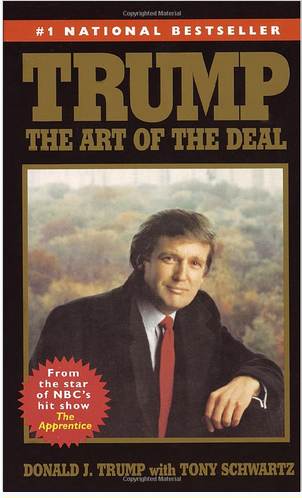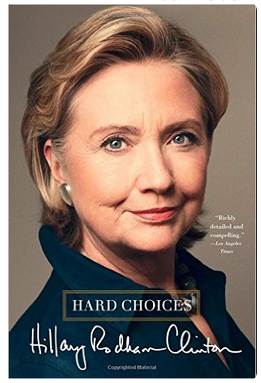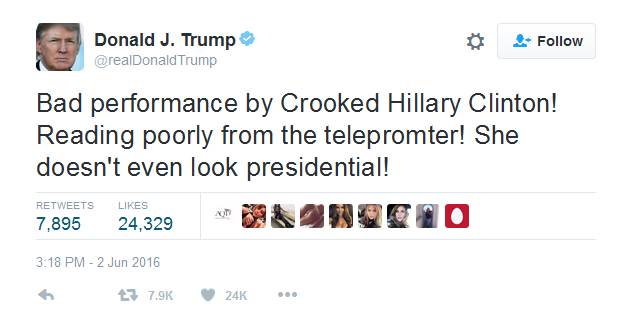“Let’s rehearse it a few more times, to make it look spontaneous” – (theater director, when I was a high school sophomore)
The kerfuffle around Trump’s “teleprompter” issue appears to have died down, coincidentally with his increased use of a teleprompter. I guess a politician has to “play to their strengths.” In other words: be inauthentic.

Wear mask for authentic smile
“Authenticity” means that something is real, original, not copied, not fake. So, it’s odd for a media figure, whose entire career has been massaged and manipulated, to be concerned about not being fake. Authenticity is valuable, of course, which is why political candidates want it, in spite of being stage-managed to the point where they are practically Hollywood special effects. Yet, we’ll pay more for an authentic Stradivarius, and we’ll value a sincere (i.e.: authentic) smile over a pasted-on stage rictus.
“Vague concepts” are a philosophical problem in epistemology: suppose an average man has 100,000 hairs on his head, at what point do we say he is “bald”? Nobody’s head is likely to be completely hairless – are they “bald” if they have 1 hair? What if they have 10? Is there a certain number, length, and color of hairs that is the demarcation line from “bald” to “balding”? If “authenticity” is a vague concept, we have a problem when we value authenticity from our politicial leaders, because we’re saying we value something but we’re not really sure how much or even what it is.
So let me remise my argument from earlier: we have a problem with authenticity – we value it and we value our politicians if they are authentic orators. Or, rather, we value them if they are good authentic replicas of orators. We acknowledge that they are fakes but it’s acceptable as long as they’re not awkward fakes. Indeed, we accept polished fakery all the time:

Authenticity is a vague concept.
I wrote a book back in 2001 (it was a flop, and I said some embarrassing things, please don’t look it up) and my publisher provided an executive editor.* I wrote the outline, and all the chapter text and Editor Nancy went through and smoothed out awkward bits, rearranged a few things, and even shuffled around a paragraph or two. Was the authenticity of my writing reduced by having an editor? The result was definitely better than if I had just laid my immortal words on paper and hurled it onto the publisher’s desk: “DONE!”
Perhaps we value readability over pure authenticity, we’re willing to accept a bit of fakery in order to keep things more readable. But would you feel faked if the editor turned the book into a great piece of literature, when the original source material was not? If I found that one of my favorite books – let’s say Frank Herbert’s “Dune” – was handed in to the publisher as a vast meandering manuscript that was aggressively edited down into a masterpiece, would I feel differently about “Dune”?** I still love the book, but I’m less impressed with Frank Herbert (and his subsequent writing reinforced that)***
In this age, writing by committee is a big piece of the media landscape. If you’re not familiar with it already, I highly recommend Ben Blacker’s “Writers Panel” podcast. It’s interviews with writers about writing, and you learn about how a “writers’ room” works, and a “show runner” assembles pieces of script, etc. It’ll help you understand better when you see some show and think “Wow, this is so polished!” That’s because you’re not getting a work of genius from a single mind, you’re getting a product that has been crafted by experts at story arcs, who consulted with experts who know where to factor episode-breaks, and experts in dialogue from various cultures, etc. – it’s a team effort and the resulting show can be a great deal of fun, but it’s not actually by anyone. That’s what we’ve headed into in politics, as in every other form of entertainment: when the politician pops a zingy-sounding line off the teleprompter, it was written by someone in a writer’s room, vetted by multiple layers of sanity-checks for sensitivity and truthiness, and finally allowed into the light of day, then “let’s rehearse it a few more times, to make it look spontaneous.”
I’m not saying any of this is bad. But as a people, we expect leaders to understand and be able to synthesize ideas. That’s why, when libertarian presidential candidate Gary Johnson was authentic and asked “What is ‘Aleppo’” we accept that he was revealing his authentic ignorance of what’s going on in the world he wants to help govern. Would Johnson still have a career if he had said, “Let me check with my ‘room’ … hang on” as he pulled out an ear-bud to get coached? That, by the way, was pretty much what George Bush did during the debates. If we value the authenticity of debate and rhetoric, we sure are going about it all wrong.
In the post-authenticity world, we need to realize that we’ve moved past authenticity and into meta-authenticity. We’re no longer able to expect authenticity, we’re simply expecting an authentic performance of someone trying to appear authentic. In other words, media figures and politicians are not creative (i.e.: not interesting) at all, they’re just the middle-person between us and their writers’ rooms. The relationship they represent is not the author:editor relationship, it’s the scriptwriter:actor relationship. I’m not saying there’s anything wrong with it, just let’s not lie to ourselves or let others lie to us.

Authentic Replica
The teleprompter issue has been “done” and even “done to death” so let’s look at authentic writing. Donald Trump’s original claim to fame was his book “The Art Of The Deal” which we now know Tony Schwartz wrote. Think about that: Trump is famous for, largely, sticking his name on someone else’s work. If that’s not a distillation of everything that is Trump, nothing is. Of course we are expected to see the “with Tony Schwartz” at the bottom and realize that the main part Trump contributed to writing the book was signing his name on a contract and cashing some rather large checks. It’s Amazon ranking is #44,314 in Books, which means that people are still buying it: authentic replica of an autobiography.

It takes a ghostwriter
Clinton’s authentic replica of a book doesn’t mention the ghost writer, Barbara Feinman, on the cover. Apparently we were supposed to believe it was actually written by Clinton, who said: “I actually wrote the book … I had to write my own book because I want to stand by every word.”

Choosing ghost writers was the hard choice
Edward Widmer wrote Clinton’s authentic replica of a book about being Secretary of State, “Hard Choices” and isn’t mentioned on the cover, either. By now, we ought to know better than to believe it’s a book that was actually by Clinton. It’s a book about Clinton and #16,045 in Books. Ironically, by putting the name of his ghost writer on the cover of his bespoke hagiography, Trump was more authentic than Clinton has managed to be, so far.
As a fan of history I have something of a problem with authenticity, because some day, these reeking piles of bullshit may be used to write the history of a time. I was, in fact, inspired to write this piece because an article at Counterpunch pulled up some stuff from “Hard Choices” about the US’ involvement in “regime change” attempts in Syria. I’ve discussed that elsewhere, and was surprised to see Clinton apparently disclosing what would have to be secret information about US covert operations. But can I cite “Hillary Clinton” as having said anything in “Hard Choices”? My father, the authentic historian, used to say that the history of a time can’t really be written until all the bodies are buried and it can take a generation or two for the primary sources to come up. What will those primary sources for this time be? Will they be the interview tapes from when Clinton told Widmer the outline of what became his book? Or will they be the unguarded journal that was kept by someone watching from elsewhere inside the whirlwind? I read books like Bob Woodward’s “Obama’s Wars” and imagined that I was studying an account of events in my time. But, on reflection, it’s only possible to conclude that Woodward traded access for authenticity; he’s not quite a ghostwriter, perhaps he’s a ghost historian.
We’re looking at the tip of a vast industry that packages and manipulates bullshit. Ranging from the long dead L. Ron Hubbard – who has finally stopped writing books**** – to manipulative politicians who complain about eachother reading off teleprompters, yet use ghostwriters “so they can stand behind every word.” It’s all performance art. No, wait, it’s an authentic replica of performance art; it’s a show-runner’s pitch of what a reality TV show about performance art might be.

Donald Trump’s “Teleprompter Gap” Is Becoming A Problem – at CBS News
(* An “executive editor” is one provided by your publisher, basically a book shepherd, and someone who will ride herd over you and make sure things are going on schedule. They will also, presumably, tell the publisher if you’re falling behind. That’s a slightly different agenda than if a writer had their friend, the language maven, edit for them.)
(** That is, apparently, pretty much what happened.)
(*** This is what I think of as the “bestselling author effect” – the first bestseller by many bestselling authors is usually pretty tight because they were not a bestselling author yet, and the publisher was able to get them to edit or accept outside edits. Once they are a bestselling author, then they begin to believe their own marketing and convince themselves that they’re great writers – the next thing you see is that the books get larger and more unwieldy. Diana Gabaldon, Tom Clancy, Stephen King, J.K. Rowling, I am looking at you! When I see that, I usually assume that the writer is actually not that good, they just had good ideas and a good editor early in their careers, and have thrown off the shackles of excellence and blossomed into the true hack-writers that they always were.)
(**** I hope.)


You raise some interesting points here. However, I don’t think what you describe bothers me as much as it might bother you.
You’re right, a great deal of what comes out of candidates’ mouths and pens isn’t written by them. There are very good reasons for that, though. If any person from any time throughout history — including leaders like Lincoln or MLK or Queen Elizabeth I or whoever — was followed around and had their every utterance scrutinized the way modern presidential candidates do — including all of us — the number of downright stupid things said would be staggering. We are all fortunate we don’t have that much attention.
In a larger sense, though, what we’re really planning on hiring for the next four years is to a large extent a committee chair. The biggest thing a president does is to hire and oversee various interlocking teams that do most of the actual work of administering the country.
That’s why paying attention to the campaign is important; if a candidate can’t manage all the parts of a campaign well, like hiring good speechwriters, managing messages from day to day, making sure surrogates stay on-message — then that doesn’t bode well for their ability to manage the vastly more complicated federal government.
Let me also say that, of all the criticisms leveled at Obama, the criticism that he uses the teleprompter too much strikes me as the dumbest. He comes from an academic background — at heart, he’s more of a writer who thinks and reflects than a politician who always reacts from the gut. To me, that’s his greatest strength. And I don’t even care how much of his speeches are his own, and how much belong to his writers. Everyone who is involved with the process says it’s a lot more complex than that — good speeches are produced by teams who each know and can communicate with the language and thoughts of the others.
These are not new problems for the writing of history. Not new at all.
Julius Caesar wrote his own books, or so most people would agree. That his Gallic and Civil wars went the way he said they did is much less certain. Alexander the Great took official historians along with him to record his campaigns (Callisthenes and later Ptolemy), but today we only really know about them from popular historians writing three or four centuries later (primariy Arrian, Plutarch and Diodorus Siculus). These historians purport to have seen now-lost official letters of Alexander’s, including the man’s diaries and last will and testament, but most modern historians presume that such letters were probably fakes. Cicero’s letters, which help us to flesh out the political turmoil surrounding Caesar’s career, are generally assumed not to be fakes, though they were edited for publication by his secretary Tiro and his friend Atticus after his assassination, so who knows what incriminating or politically sensitive material was left quietly on the cutting-room floor?
Cicero, of course, brings us on to oratory. By all accounts Cicero was one of the greatest orators of all time, and his books on how to do well in oratory (orator, de oratore, Brutus) make plain that the skill in the medium is in making arguments seem stronger or weaker than they are and opponents seem sillier or viler than they are. Aristotle was so alarmed by the potential of oratory to obfuscate and distract that he felt a serious scientific study of it was needed as a remedy. So it seems a little strange to talk about an inauthentic orator or a fake orator – oratory is a art form inseparable from fakery and inauthenticity! Being good at oratory pretty much means being good at being fake – nobody really talks or thinks like a formal public speech.
Pretty much every culture of power, from the Roman Emperors to the Chinese Emperors to the Bourbon Kings to the courts of Stalin and Kim Jong Il, has availed itself of the misdirection and spin inherent in blurring the boundaries between the real and the fake. There has never been a political culture without these features.
Most of Trump’s tweets, as well as his speeches up until last month or so, seem to have come directly from his brain(stem), and a large portion of his followership gets excited about such genuine sincerity.
How could anyone but a paragon of elite manipulative Pee Cee artificiality fail to see in such intimately heartfelt emotion the Cure to All that Ails America®?
I don’t care so much about authenticity. I mourn the death of what I call empirical speech. All I hear from the politicians, and what gets repeated by so many on Facebook and Twitter, is “we must work together to protect our values and our freedom,” and not “policy X will help Y people and negatively affect Z people and it will happen if politician A can convince politicians B through G, which has H% chance of happening.”
I am annoyed by vague speech, no matter how authentic it is. I hate the rhetoric that relies on words that describe broad concepts, which are assumed to be interpreted by its target audience to mean whatever the speaker intends. I therefore prefer speech that includes concrete examples or empirical data.
brucegee1962@#1:
I don’t think what you describe bothers me as much as it might bother you.
I’ll say for the record that I’m not exactly “bothered” by this stuff but I’m nonplussed. Many people seem to value the appearance of authenticity while recognizing its absence. I think I’m OK with outright actors, or authentic performance art, but I don’t have a lot of appreciation for authentic-looking performances that are intended to appear as if they are oratory.
We are all fortunate we don’t have that much attention.
Quite true. But in the old days, kings had ways to deal with that. “I wager I can show you something you’ve never seen before, Mr Voltaire,” said the regent to the playright. “And what is that, Sire?” replied Voltaire. “The inside of the Bastille.” And so it was done.
In a larger sense, though, what we’re really planning on hiring for the next four years is to a large extent a committee chair. The biggest thing a president does is to hire and oversee various interlocking teams that do most of the actual work of administering the country.
I’ve touched on that argument before. If that’s the case, I’d respect a candidate who said “I’m a policy wonk not an orator; I’ve gone over the econ committee’s report and agree with it, now here’s Sir Mix-A-Lot to break it down for you on the mic. Out.”
if a candidate can’t manage all the parts of a campaign well, like hiring good speechwriters, managing messages from day to day, making sure surrogates stay on-message — then that doesn’t bode well for their ability to manage the vastly more complicated federal government
Very important point. Having very peripherally encountered the edges of the White House whirlwind, it appears that “VEEP” is closer to documentary than comedy. The entire exercise of the executive branch appears to be herding chucklefucks while keeping the more machiavellian ones from ice-picking eachother.
Let me also say that, of all the criticisms leveled at Obama, the criticism that he uses the teleprompter too much strikes me as the dumbest. He comes from an academic background — at heart, he’s more of a writer who thinks and reflects than a politician who always reacts from the gut. To me, that’s his greatest strength.
I agree.
With reservations: I suspect that Obama is a brilliant writer and probably a very good orator. Since I value good writing and oratory, I’d like to see what he can do if he stepped aside from the prepared speeches and actually spoke his mind. I think it would have played better, though following Bush, your average fire hydrant looks like a great orator, so it’s a low bar. I wish Obama had done it. I would respect him more as a president.
good speeches are produced by teams who each know and can communicate with the language and thoughts of the others.
If you told me that Shakespeare was written by a committee, I would lose respect for it as art. Yes, I understand that political speeches are manipulative bullshit, not art – that’s all: I get sad when I see people mistaking them for art and not well-crafted marketing.
cartomancer@#2:
Yes! Well said!
I swapped a couple emails with the Counterpunch author on the Clinton piece, who pointed out that the ghost-writer would not have known the things Clinton told them, so we may not know it’s Clinton’s words but it clearly came from her. OK, I’ll buy that.
I’m sure you know that’s why historians’ entire practice is built around trying to align multiple corroborating sources, to compare and contrast them.
Marcus:
Huh? You speak as if the two (art and manipulative bullshit) were mutually exclusive.
Pierce R. Butler@#3:
Good point – Trump’s legions venerate him for his authenticity. Which is bizzare given that he’s a reality(tm) TV star. But, to my point: they value authenticity, even when it’s just a cheap copy of authenticity.
John Morales@#7:
Huh? You speak as if the two (art and manipulative bullshit) were mutually exclusive.
I wasn’t clear. There is art that is bullshit and there is art that is not. There is manipulative bullshit that is a subset of bullshit. So I’m not trying to imply that they are mutually exclusive; not all art is bullshit.
Can I say that? I think, yes. Some art, such as the Ready-made, was a true statement about bullshit; it probably couldn’t be true and bullshit at the same time, so not all art is bullshit. It’s late and I’m tired; I am not sure I can defend the hill of art criticism, but having marched up to the top to enjoy the view, I can’t bear to come down.
invivoMark@#4:
I am annoyed by vague speech, no matter how authentic it is. I hate the rhetoric that relies on words that describe broad concepts, which are assumed to be interpreted by its target audience to mean whatever the speaker intends. I therefore prefer speech that includes concrete examples or empirical data.
I agree. I feel nauseous when a politician says “freedom!” and doesn’t define it. Because I know that to them it’s just a word and to their victims it’s a fractally-detailed package of impressions and half-baked vague ideas.
I work in high tech and constantly have to deal with buzzword marketing. It’s similar: buzzwords and vague concepts are good-sounding stuff used without defining it first. “Big data!” well, who’d want small data?
No worries, Marcus. I take your point.
(My quibble was about the phrasing)
One thing that I’ve noticed is that many people expect both authenticity and a highly “polished” presentation from politicians. These are contradictory expectations. Even the most intelligent, self-disciplined person, if left to their own devices, is going to sometimes say stupid or incoherent things, or lose their temper, or ramble off on a tangent, or stutter or repeat themselves. Although this is very human, every such gaffe and mistake by a politician is seized on by both traditional media and social media as a sign of the politician’s unfitness for office. To guard against this as much as possible, politicians have to be relentlessly coached and guided and scripted by a whole team of people. This inevitably means that they will be less authentic and that it can be damn near impossible to know what their true feelings or intentions are.
springa73@#12:
One thing that I’ve noticed is that many people expect both authenticity and a highly “polished” presentation from politicians. These are contradictory expectations.
Exactly. They want an authentic replica. But it’s got to be a really good replica.